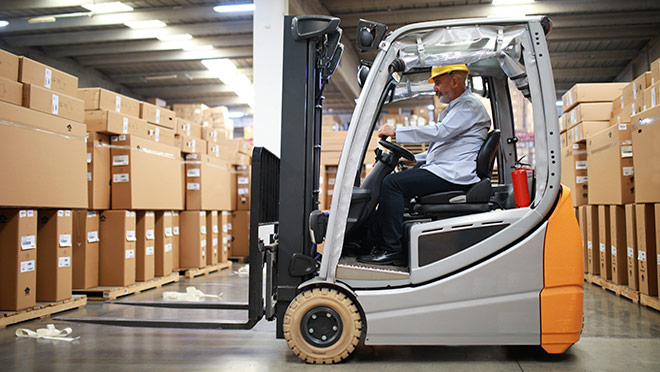Lighten the load with our electric forklift calculator
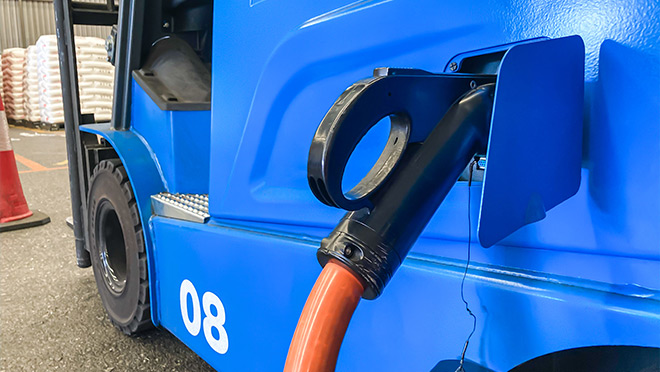
Get to know the benefits of an electric forklift fleet
At the beginning of 2020, we took a look at the benefits of electric forklifts and how the latest lithium-ion battery-powered models are around 30% more efficient than older lead-acid battery models. They also have quite a few other benefits:
- Reduced charging time: Lithium-ion batteries can charge up to eight times faster than older lead-acid batteries.
- No swapping out: Lithium-ion batteries don't need to be swapped out and can even be charged up during coffee breaks.
- No hazardous fumes or leaks: There are no CO2 fumes from an electric forklift, and if you have a lithium-ion battery, there are no potential acid leaks, either.
- Fewer battery replacements: All batteries have a lifecycle, but modern lithium-ion batteries last a lot longer than older lead acid batteries. This means you'll have to buy fewer replacement batteries and dispose of fewer dead batteries after they reached their end-of-life.
- Silent operation: Need to operate a forklift in public areas? No problem – electric forklifts are virtually silent.
Calculate your savings
Many larger businesses have already made the switch to electric forklifts. But if you're a small business, it can be difficult to figure out which option makes sense. To help, we've created a useful calculator so you can crunch the numbers and make an informed decision.
All calculations are based on a 5,000 pound capacity forklift, BC Hydro's large general service rate, and recent average fuel prices in Greater Vancouver. Exact costs may vary depending on your location.
For the demonstration below, we've looked at the 10 year lifecycle costs of a fleet of five electric forklifts, each operating for 2,000 hours a year (eight hours a day x five days a week x 50 weeks a year). When doing your calculation, input the data relevant for your business.
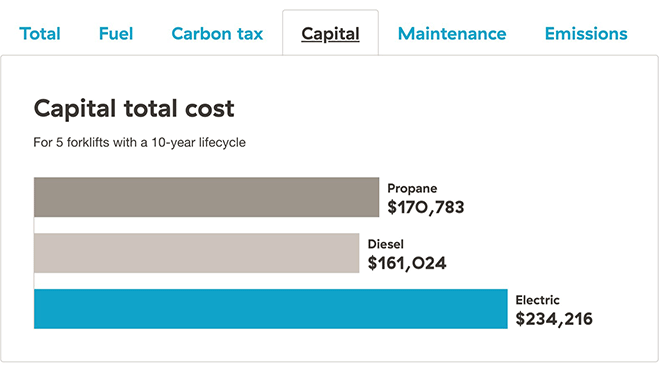
Capital
Let's talk about the upfront cost first as electric forklifts do cost more to buy. And unlike electric vehicles, there are currently no available incentives. But stay with us, because you're about to see some significant long term savings.
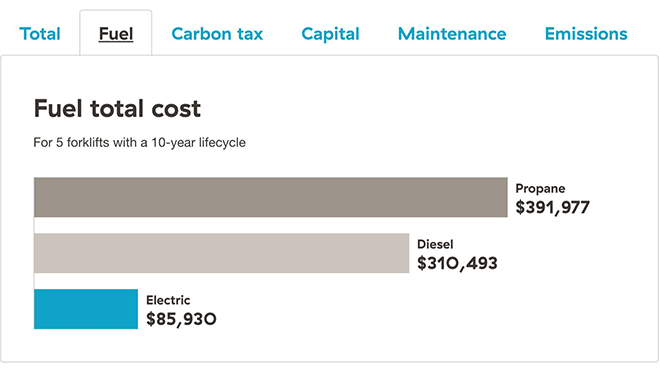
Fuel
Based on BC Hydro's large general service rate, we can immediately start to see where those savings kick in. Electric forklift energy costs are roughly 25% of what you could pay with a gas-powered model.
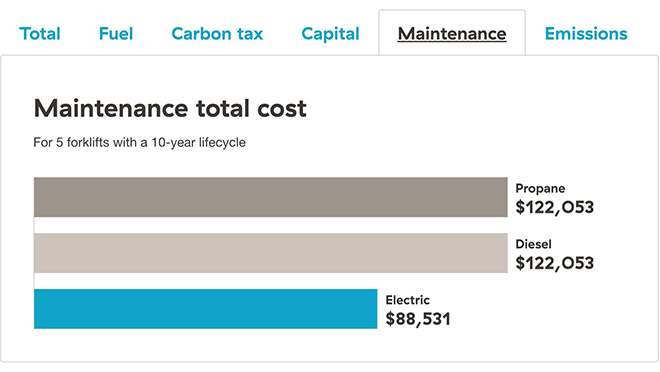
Maintenance
Electric motors have far fewer moving parts than gas-powered drivetrains, so electric forklifts suffer less wear and tear and therefore require less maintenance.
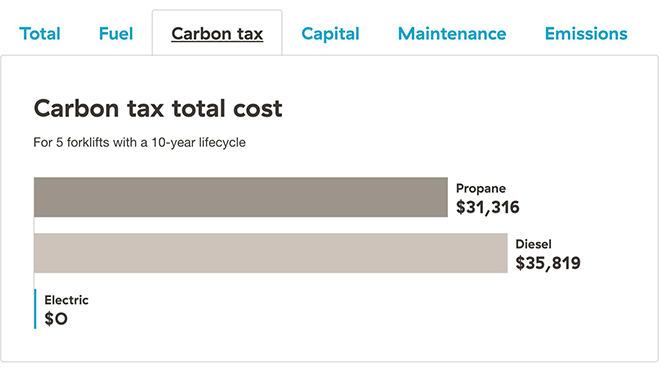
Carbon tax
Electric forklifts are exempt from carbon tax. Whereas with the five gas-powered models used in this example, you could be paying over $30,000 in taxes over 10 years.
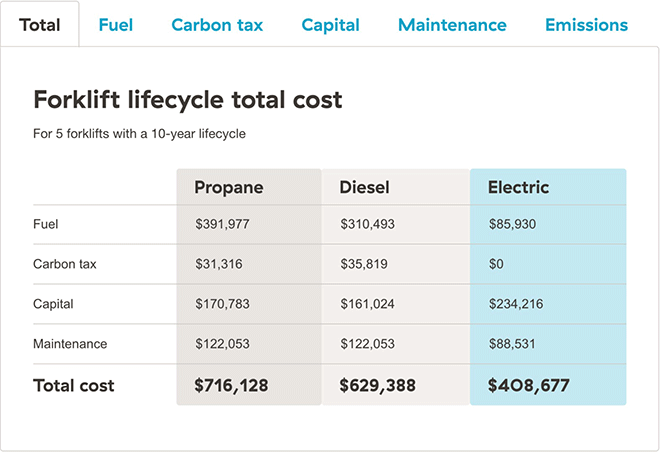
Total costs
When we factor all those costs into the mix and look at the total for this example, it's easy to see that the electric forklift solution is going to be saving your business the most money. And let's not forget that you'll also be reducing your impact on the environment.
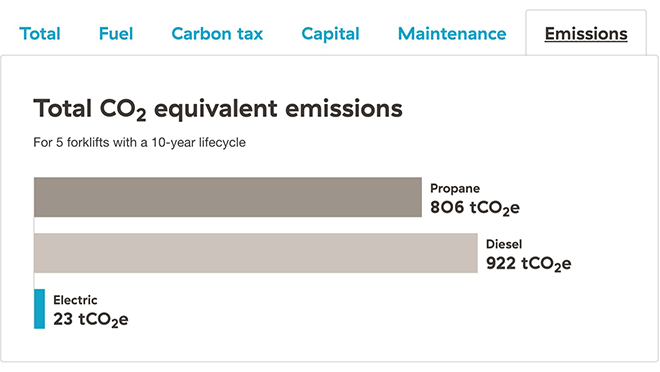
Emissions
Electric forklifts don't emit exhaust fumes, but there are some emissions associated with the electricity they use. However, because the electricity BC Hydro generates is 96% clean, those emissions are kept to an absolute minimum – approximately just 2-3% of the emissions produced by propane or diesel forklifts.
Ready to give your warehouse a lift?
If you'd like to find out more about electric forklifts and see what they could do for your business, try running your own numbers through our calculator and then talk to your BC Hydro Key Account Manager or Regional Energy Manager.
Get the latest COVID-19 advice for your business
Make sure your team and your business are benefitting from the latest BC Government advice on COVID-19, including their Support for Businesses information.
And of course, BC Hydro is here to help. Reach out to your Key Account Manager or Regional Energy Manager if you have any questions or concerns.
